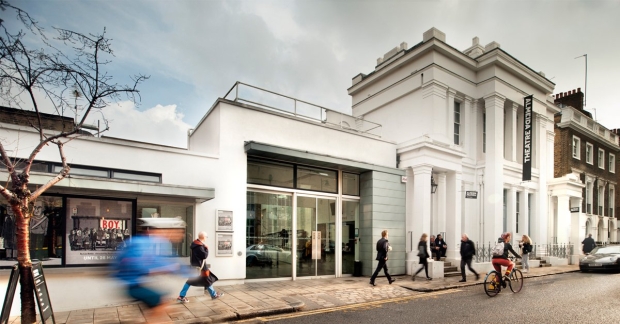Almeida Theatre to reopen in May with semi-staged work project
The venue is back in action

© Philip Vile
The Almeida Theatre in north London has unveiled reopening plans.
From 19 May to 5 June, the venue will present new project Six Artists in Search of a Play, which sees six creatives perform semi-staged work to socially distanced audiences, with streaming options available at a later date.
Ebenezer Bamgboye, Atri Banerjee, Nastazja Domaradzka, Anthony Lau, Audrey Sheffield and Cherrelle Skeete are the six artists involved, with the work featuring epic Polish poems, 1930s Chinese tragedies, Yiddish folk tales and contemporary Indian family dramas.
The season kicks off with Sheffield's presentation of The Dybbuk, originally penned by S Ansky and translated by Golda Werman. It follows a bride-to-be who, on her wedding day, is possessed by the spirit of a dead former lover. Sheffield said: "The Dybbuk was a revolutionary drama in its time and became a canonical work of both Hebrew and Yiddish Theatre. It stands out for its rich universality and as one of the most original and powerful plays in the genre."
Lau will oversee Cao Yu's Thunderstorm, first performed in 1935 and now with dramaturgy by Amy Ng. It is regarded as one of the most important works of modern Chinese theatre. Lau says: "Thunderstorm is not a one-stop shop for Chinese drama, but written in a time of socio, cultural and political conflict, it captures the mood of the nation and puts it into the hands of two families fighting, serving, living and longing alongside each other."
Bamgboye will then present Ola Rotimi's The Gods Are Not To Blame inspired by Sophocles' Oedipus Rex and following a Nigerian king in a story considered an allegory of colonialism. Bamgboye said: "To me, Ola Rotimi is undoubtedly the Shakespeare of Nigeria, and perhaps even of Africa! The Gods Are Not To Blame is a prime example of his excellence and idiosyncrasies; visceral, thrilling, poetic and an enshrinement of the quintessence of Nigerian culture."
Domaradzka will then oversee Dziady/Forefathers' Eve, penned by Adam Mickiewicz, in a translation by Charles S Kraszewski. The show follows a Polish political prisoner incarcerated for nationalistic activities under Tsar Alexander I.
Domaradzka said: "A year on after theatres closed; a year of grief, protests, movements rising, a year when Britain exited the EU, a year in which the class privileges became even more visible, a year that called for the work that we present to be speaking to here and now, Mickiewicz's verse seems just as relevant in this awakening world as it did in 1960s Poland when the Soviets tried to ban it."
One of the venue's resident directors Banerjee will present Annie Zaidi's Name, Place, Animal, Thing, which interrogates ideas of class, caste and gender within the contemporary Indian home. Banerjee said: "When I first came across the work of the formidable journalist, essayist and creative writer Annie Zaidi, I was immediately struck by the way she marries searing political insight with human, truthful stories. The story of Nancy and the Maliks is one I see echoed in aspects of my own life both in the UK and in India. While the family and class dynamics described within the play are specific to contemporary Indian life, they resonate universally."
Concluding the season will be Skeete with Vanessa Walters' Michael X, which was first produced at the Tabernacle Theatre in 2008, directed by Dawn Walton. Skeete said: "Michael X represents the community hero that was created out of a desire to survive and thrive no matter what. Although the majority of the black power movement was captured in London, there were Michael X's all over the UK. Telling this story pays homage to the unsung heroes of inner city migrant communities."
There will also be an accompanying programme of music, dance, panel discussions and rehearsed readings to coincide with each piece.












